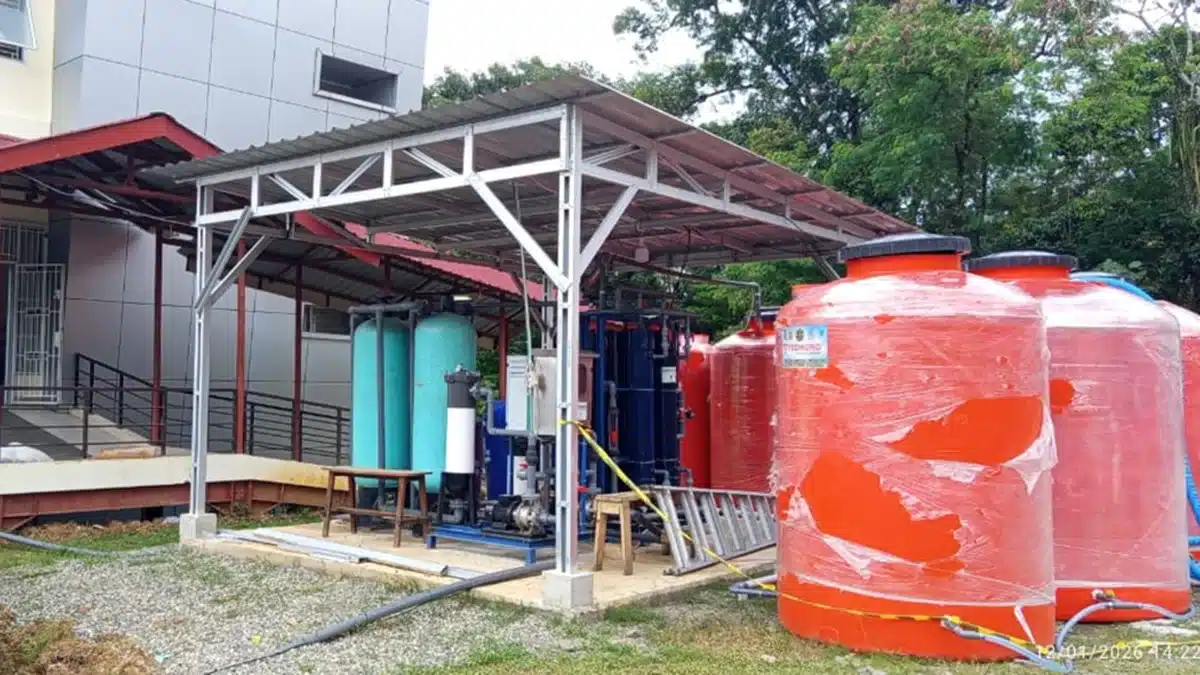The management of education activities must refer to the higher education standards that have been set, especially the Tri Dharma of Higher Education, namely Education, Research and Community Service.
Observing the regulations of National Accreditation Board of Higher Education No. 1 of 2020 regarding the Accreditation Mechanism, there is a change in the terms of the accredited rating, namely to Excellent, Very Good, Good, and Not Accredited. To discuss these changes, Faculty of Social and Political Sciences of Diponegoro University (Undip) held a Webinar on Tuesday (21/09) at 08.30 AM through Zoom meeting platform.
The webinar with the theme “Conversion of Supplement Instrument of Accreditation Status from A to Excellent” was attended by the Dean of Faculty of Social and Political Sciences Undip, Dr. Drs. Hardi Warsono, MTP.; Deputy Dean I of FISIP Undip, Dr. Drs. Teguh Yuwono, M.Pol.Admin.; Chairman and Members of Faculty Quality Assurance Team of FISIP Undip. The invited speakers are Prof. Dr. Bernard Isyandi SE. MS. (University of Riau); Dr. Drs. Udik Budi Wibowo, M.Pd. (Yogyakarta State University); Prof. Dr. Kusdi Raharjo, DEA. (Universitas Brawijaya); and Dr. S. Bekti Istiyanto, S. Sos., M.Sc. (General Soedirman University).
In his remarks, the Dean of Faculty of Social and Political Sciences Undip, Dr. Drs. Hardi Warsono, MTP., said that universities as educational institutions need to manage teaching and learning processes well. “This management will produce graduates who are credible and have good competitiveness,” said Hardi Warsono.
Hardi added that based on Law No. 12 of 2012 concerning Higher Education, as well as Regulation of the Minister of Research, Technology and Higher Education No. 44 of 2015 concerning the National Standards of Higher Education, one of which regulates the obligation to carry out accreditation as a form of implementation of academic quality assurance.
“The accreditation process for the old version was conducted with 7 standards. Then we are going to switch to the new version and convert it to Superior accreditation,” said the Dean of FISIP Undip.
Furthermore, Hardi said that the purpose of accreditation is to guarantee that accredited institutions have met the quality standards set by National Accreditation Board of Higher Education. The results will encourage universities to make improvements and it can be used as a basis for consideration in transferring higher education credit.
Prof. Dr. Bernard Isyandi SE. MS., described the Accreditation Policy is currently entering the era of Free Learning – Independent Campus. With this policy, there are at least three changes and one of them is that the Accreditation decision will be extended when it expires if there is no indication of a decrease in quality or violation of laws and regulations. “However, if there is a decrease in quality or a violation of the applicable laws and regulations, it certainly cannot be extended,” said Prof. Bernard.
Then universities can submit a re-accreditation proposal if they want to increase their accreditation rating. “Universities can submit a proposal based on 9 criteria,” said Prof. Bernard, who also serves as Head of Department of Economics of Faculty of Economics and Business, Riau University. Furthermore, universities or study programs that are established or opened after January 28th 2020 are declared to meet the minimum requirements for accreditation and receive a Good accreditation rating. This rating cannot be extended without a proposal.
Dr. S. Bekti Istiyanto, S.Sos., M.Sc., explained that National Accreditation Board of Higher Education uses the Conversion Supplement Instrument to convert from the old accreditation rating to the new ones. For example, from “A” Accreditation to an Excellent Accreditation, from “B” Accreditation to Excellent Accreditation, and from “C” Accreditation to an Excellent Accreditation.
“Conversion Supplement Instrument is an additional instrument of accreditation which is used for making decisions on converting the accredited rating. It is obtained with the 7 standards of accreditation instrument of study program into a new accreditation rating in accordance with the instrument of Study Program Accreditation 4.0 ,” explained Dr. S. Bekti Istiyanto.
Prof. Dr. Kusdi Raharjo, DEA., explained some of the differences between 7 and 9 standards of accreditation, namely in the profile of graduates and suitability for employment. “The differences are reflected on the graduates, accreditation with 7 standards which mainly used in the past emphasized more on input and process. Meanwhile accreditation with 9 standards or Study Program Accreditation 4.0 emphasizes more on output and outcomes, therefore graduate profiles and job suitability are important factors,” he explained.
“Conversion Supplement Instrument is needed because there are differences between Study Program Accreditation 3.0 and Study Program Accreditation 4.0. So with this difference, there is no equality of accreditation results, even though there are 3 ranks in both versions of accreditations but they are different,” concluded Prof. Kusdi.
Furthermore, Dr. Drs. Udik Budi Wibowo, M.Pd., added that in the accreditation process, there is a quality culture that needs to be maintained. “In any accreditation, in principle we run a quality culture related to behavior and evidence of continuous quality improvement,” explained a resource person from Yogyakarta State University as well as Assessor of National Accreditation Board of Higher Education.
Translated by: Titis (Public Relations)








